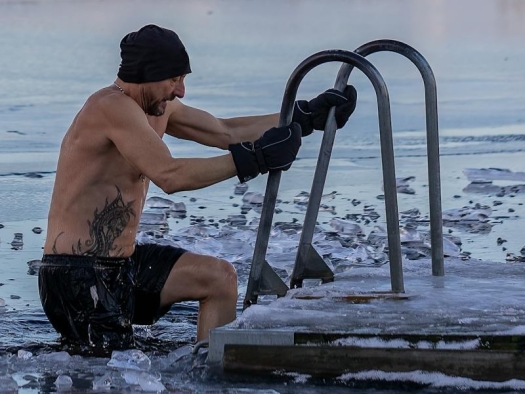ColdPlunge.jpg

Photo by Olavi Anttila / Pexels
Cold plunges
Do cold plunges really help your cells? A new study says YES.
New study explains exactly how ice plunges and cold showers affect cellular health.
Researchers at the University of Ottawa found that cold immersion improved autophagy (your body’s cellular clean-up system) and decreased signs of cellular damage.
Translation: Cold exposure might help your cells become more resilient.
Some key points:
- The study was small (10 healthy young men)
- The cold plunge baths were set to 14°C (57.2°F)
- The men stayed immersed for one hour per day
- The body adapted surprisingly fast – within just a week
- This could have benefits for stress resilience, disease prevention, and even aging
We are always following the science to bring you what works, but please be aware that cold exposure is not appropriate for everyone. Always check with a provider to be sure you are being safe.
Best midlife diet
Researchers just identified the best midlife diet for aging with energy and clarity.
Does what we eat in midlife affect how we age? That’s the question that a new study published in Nature Medicine set out to answer.
Here’s the main finding: People who followed healthier diets were more likely to reach age 70 free from chronic disease and with good cognitive, physical, and mental health.
Some study highlights:
- Over 105,000 health professionals were tracked for 30+ years
- Only 9.3% reached age 70 in good health and disease-free
- Of 8 healthy dietary patterns studied, the Alternative Healthy Eating Index (AHEI) came out on top
- Those most closely following the AHEI were 2.2x more likely to reach age 75 in good health compared to those who didn’t follow it.
The AHEI diet emphasizes fruits, vegetables, whole grains, nuts, legumes, and healthy fats – while limiting red and processed meats, sugary drinks, sodium, and refined grains.
So the answer is: YES.
What you eat in midlife can have a major impact on how you age.
Any exercise boosts the brain
Researchers just reviewed 2,724 studies and found that ANY exercise boosts the brain – at ANY age.
This was the largest research review of its kind. After analyzing 133 systematic reviews (including 2,724 studies and over 258,000 people), they found exercise improves brain function across all ages. Here’s what stood out:
- Low to moderate-intensity movement worked best
- Yoga, Tai Chi, and even active video games showed big benefits
- Gains were seen in as little as 1-3 months
So whether you're 7 or 70, whether you jog, stretch, dance, or strength train, movement helps your mind.
Screen time before bed
Screen time before bed? Here’s what the latest research shows.
Sorry but… a new study from the American Cancer Society found that daily screen use within an hour of bedtime was linked to:
- 33% higher rate of poor sleep
- Nearly 50 minutes less sleep per week
- Later bedtimes, especially for night owls
So, what can you do instead of doom scrolling or streaming one more episode? Try one of these screen-free wind-down rituals in the hour before bed:
- Light stretching or yoga
- Reading a real book (not on your phone!)
- A warm bath or shower
- Breathwork or meditation
- Journaling or gratitude writing
- Meaningful conversation with a partner
- Herbal tea and quiet music
The brain just needs time to shift from “on” to “off.” Protecting that transition supports better sleep, better mood, and better health.
References
King KE, McCormick JJ, Kenny GP. The Effect of 7-Day Cold Water Acclimation on Autophagic and Apoptotic Responses in Young Males. Adv Biol (Weinh). 2025;9(2):e2400111.
Tessier AJ, Wang F, Korat AA, et al. Optimal dietary patterns for healthy aging. Nat Med. Published online March 24, 2025.
Singh B, Bennett H, Miatke A, et al. Effectiveness of exercise for improving cognition, memory and executive function: a systematic umbrella review and meta-meta-analysis. Br J Sports Med. Published online March 6, 2025.
Zhong C, Masters M, Donzella SM, Diver WR, Patel AV. Electronic Screen Use and Sleep Duration and Timing in Adults. JAMA Netw Open. 2025;8(3):e252493. Published 2025 Mar 3.
Revised by Joanne Quinn, PhD; content provided by Wellnesswriter.com.


